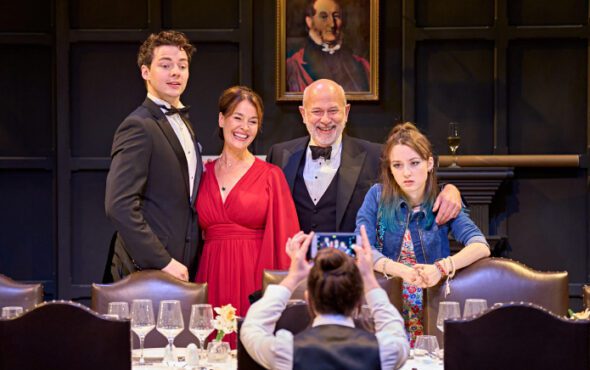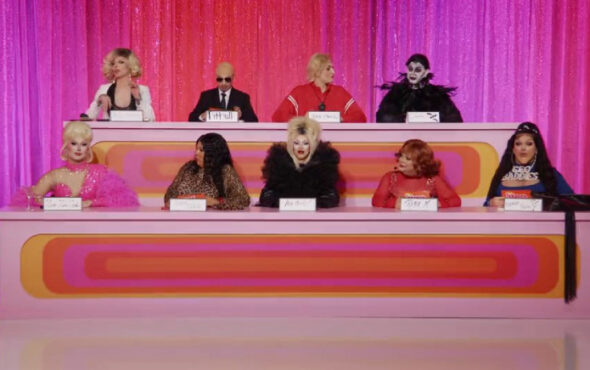
Richard Eyre’s writing debut has been a long time coming. The veteran director, recognised numerous times at the Olivier Awards (including with a lifetime achievement award), finally turned his hand to writing during the pandemic. The result is The Snail House, a two-hour political play which premiered earlier this week at the Hampstead Theatre. Eyre – the former artistic director of the National Theatre – also directs the show, which features Vincent Franklin in the lead role.
Franklin – perhaps best known for his TV work, as one of the leads in Russell T Davies’ hit shows Cucumber and Banana (but also from major BBC shows including Bodyguard and The Thick of It) – plays the role of Neil, who we assume is based on Chris Whitty. Neil is a renowned medical advisor to the government, who has played a leading role offering guidance during the pandemic, and has recently been knighted for his services to public health; the premise of the play is that he’s throwing a party for family and friends to celebrate.
The party itself is not the focus of the play, however – we see the set up and the aftermath, but the celebrations themselves occur off stage or during the interval. What we are privy to instead are the behind-the-scenes conversations between Neil and his wife Val (Eva Pope), and their children Hugo (Patrick Walshe McBride) and Sarah (Grace Hogg-Robinson). We also gain insights into the lives of catering staff members Florence (Amanda Bright), Habeeb (Raphel Famitobe) and Wynona (Megan McDonnell). The stage is set for a political drama – so how does it unfold?
Well, the premise is strong, but The Snail House sadly never quite delivers in a meaningful way. There are pacing issues – act one moves quickly and sets up lots of promising opportunities, while act two slows things right down, but doesn’t satisfactorily explore many of the themes introduced. There’s some ripe material here; the strained relationship between Vincent and his son, particularly around Hugo’s sexuality, could have been sensitively considered, but instead the tension is occasionally alluded to and then swiftly forgotten. Many of the characters lack depth – Grace Hogg-Robinson clearly works hard, but her character has been written as a fairly one-dimensional ‘woke’ Extinction Rebellion foot soldier.
There are a few successful moments; sharp one-liners illuminate the dialogue, many of which fall to Patrick Walshe McBride, who plays the roll of camp, smug special advisor Hugo perfectly. A description of working in a Romanian orphanage while a trainee doctor is powerful, and shows a different side to Neil; while a moment of reckoning between Neil and catering manager Florence adds some dramatic tension which is sorely lacking elsewhere.
The Snail House certainly isn’t without its redeeming features – the set looks gorgeous, there are a handful of funny jokes and the actors clearly do their best with the material they’ve been given – but it feels very much like style over substance. Plenty of interesting opportunities are set up, but they rarely land in a meaningful way. It’s a shame, as we concluded the first half with high hopes, and exited after act two feeling disappointed. By no means a terrible debut, but we were expecting more.
GAY TIMES gives The Snail House – 3/5
More information can be found here.



